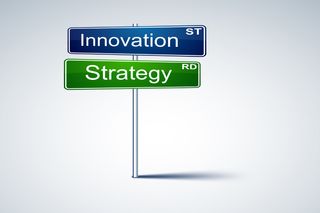Four areas where CIOs might be missing a trick
CIOs have to balance demands and prioritise every day. But are they missing anything? Mark Samuels takes a look...

Smart CIOs reacting to the fast pace of digitally enabled change already spend less time in the back office and more time engaging with internal and external customers. However, there is still much work to be done.
While some IT leaders have made the transfer from the data centre to the boardroom, other CIOs remain too concerned with operational rather than business issues. Across communication, strategy, leadership and preparation, four IT leaders discuss where they believe CIOs can continue to hone their executive expertise.
Great CIOs are top-notch communicators
Paul Colbran, CIO at Brighton and Hove City Council, says he still sees quite a few IT leaders who are CIO in title, rather than behaviour. "It's fine to want to be a business partner but you need to earn the right to contribute," he says.
Technology implementation, he says, is not just about selecting services and systems. He refers to his Council's recent introduction of the LINK network, an infrastructure created by specialist MDNX that is shared by organisations across the Sussex region. Colbran's role, as CIO, is to sell the benefits of the networking capability.
"Being an IT leader is not just about buying the network; it's about talking to the rest of the business about how you can take advantage of the services," he says. "Many CIOs are good communicators but some are technologists that have been promoted from within the company. Getting out of IT, and into other lines of business, breeds a better level of technology professional."
Communication is not just about working with other areas of the organisation. Colbran says engaged CIOs will start closer to home and focus first on their own department. "Understanding your staff is not about filing HR reports," he says. "It's about really being a people person and working out how to get the best out of your team."
Get the ITPro. daily newsletter
Receive our latest news, industry updates, featured resources and more. Sign up today to receive our FREE report on AI cyber crime & security - newly updated for 2024.
Create a mobile strategy that meets business requirements
Tullow Oil CIO Andrew Marks says IT leaders should not be swept along with the hype surrounding mobility and flexible working. While both areas form a crucial element of Tullow's business-focused IT strategy, technology chiefs must find a means to make technology work for their organisation and bring your own device is not always the most appropriate answer.
"Sameness and connectedness are the keys to delivering systems to users on business-focused platforms they trust," he says. "We don't have a specific app strategy for Tullow, but we are responding to users if they say they find something useful. Apps have a wonderful place if they can help extract what's really important. The opportunity around apps is to reduce the number of transactions, so that the user only has to work online with the few pieces of information that are really important to decision making."
Marks says the company currently supports BlackBerry and Apple iPhone devices, so the company's mobile strategy would be best described as choose your own', rather than bring your own', device. He says Tullow prefers to pay for devices so the firm knows staff have assured access to secure information. The approach, says Marks, also means employees understand the privilege of being able to work flexibly.
"We're not going to provide support for every device, and we're not going to give people a set amount of cash to spend on a device," he says, while adding productivity concerns are the drivers for his firm's mobile strategy. "Information integrity is less of a concern because of what we do at the back-end; you can solve some of the key issues through techniques like sandboxing and remote wiping. What's crucial to us is that our workers can produce value."
Leadership requires a step away from day-to-day operations
East Sussex County Council CIO Tony Summers says the nature of the IT leadership role is changing. But he also believes there is no single blueprint for becoming a successful technology chief in the future.
"There isn't one correct career path to becoming a CIO," he says. "The traditional path might have been through the internal IT department. But that's changing and more people are coming into the CIO role from outside the technology remit."
For IT leaders that do assume the heights of the CIO role, a considerable shift towards the strategic elements of technology implementation is a prerequisite. Summers says IT chiefs are aware of the need to undergo an executive transition but in many cases behaviour is not matching rhetoric.
"I see CIOs who are intelligent and who to be part of the wider business conversations but who can't let go of operational services," he says. "They don't want to lose control. But CIOs need to recognise that they can make a strategic contribution to the business. You don't have to simply manage services, and losing control of the day-to-day stuff can help IT leaders to really focus on making a difference to the wider organisation."
Be prepared, and then prepare some more
Most technology projects require a fair bit of groundwork but some initiatives are so high profile that attempting to cut corners is simply not an option. One such example is the Olympics Games and Roel Louwhoff, chief executive of BT Operate and programme lead for BT's London 2012 programme, says a number of best practice lessons emerge.
"We prepared early," he says, referring to the telecom specialist's approach to providing the networking infrastructure for the Games. "We worked with everyone involved in the Games to understand how we were going to deliver IT, many of who had worked across previous Olympics events."
Louwhoff advises CIOs who face a similarly significant challenge to draw on a wide circle of expertise. He and his team visited previous host cities, and the knowledge helped BT to create a network infrastructure legacy in the UK. Louwhoff is now passing his knowledge to forthcoming host cities, and locations that hope to make a successful bid in the future.
"Working with people who done this kind of multi-sports programme before really helped," he says. "Huge initiatives like the Olympics are only a success if everyone has the right level of network access across the nation. All 98 locations associated to the Games had to have superfast broadband and, in many cases, that network capability is staying in place."

Mark Samuels is a freelance writer specializing in business and technology. For the past two decades, he has produced extensive work on subjects such as the adoption of technology by C-suite executives.
At ITPro, Mark has provided long-form content on C-suite strategy, particularly relating to chief information officers (CIOs), as well as digital transformation case studies, and explainers on cloud computing architecture.
Mark has written for publications including Computing, The Guardian, ZDNet, TechRepublic, Times Higher Education, and CIONET.
Before his career in journalism, Mark achieved a BA in geography and MSc in World Space Economy at the University of Birmingham, as well as a PhD in economic geography at the University of Sheffield.




